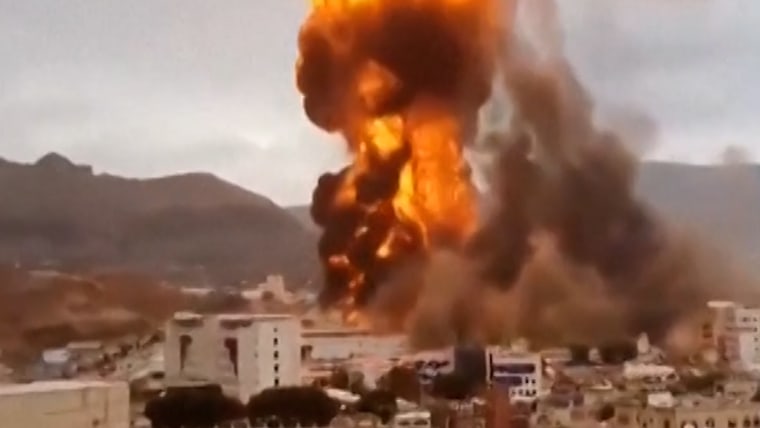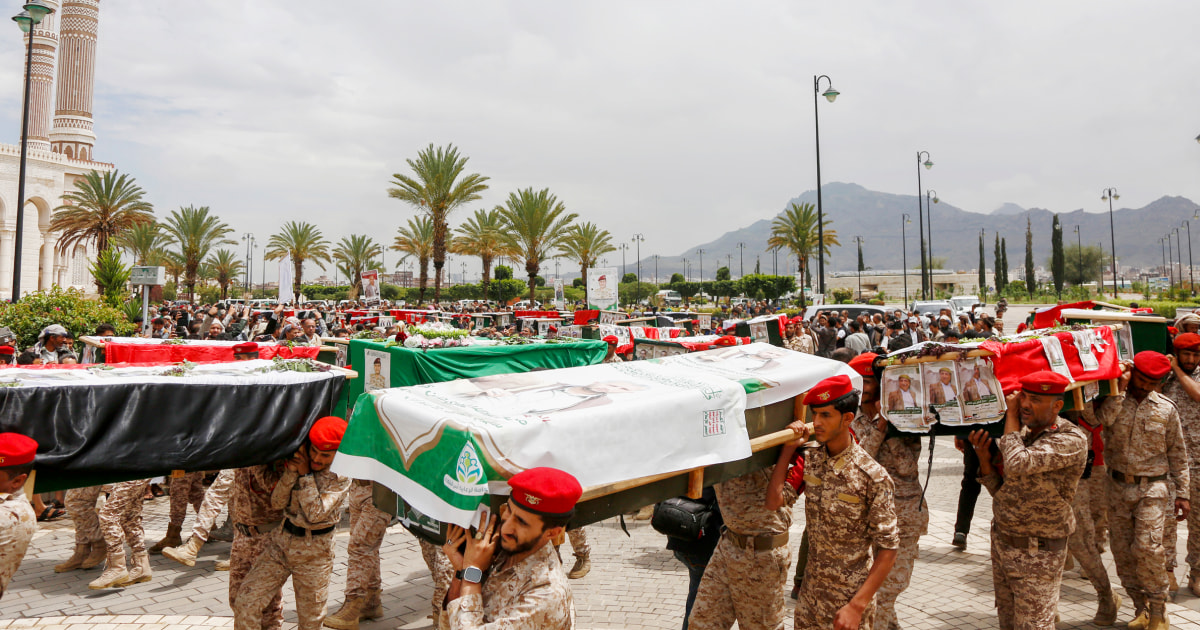The Israeli airstrikes that killed 31 journalists and media support workers in Yemen earlier this month were the second-deadliest attack ever on the press, according to a report by the Committee to Protect Journalists, a global watchdog.
At least 35 people were reported killed during the Sept. 10 bombings that struck residential areas, a military headquarters and a gas station, according to the health ministry in the rebel-held northern part of the country.
Two media outlets, 26 September and Yemen newspaper, are located in the government’s Moral Guidance Directorate’s headquarters, said the CPJ.
Nasser al Khadri, editor-in-chief of 26 September, described the killings as an “unprecedented massacre of journalists,” telling the CPJ that his offices were hit in the afternoon.
Both outlets are under the control of the Iran-backed Houthis, who say they are supporting Hamas and the Palestinians in the Gaza Strip. Journalists, including those working for state-run or armed group-affiliated outlets, are protected under international law unless they take direct part in hostilities.

CPJ’s report comes as Israel faces increased scrutiny and criticism for allegedly targeting journalists, accusations it denies, with almost 200 dead in the Gaza Strip since the war there began nearly two years ago, according to the CPJ.
Israel has emerged as “a regional killer of journalists, with repeated incidents in Gaza, Lebanon, Iran, and now Yemen confirming Israel’s longstanding pattern of labeling journalists as terrorists or propagandists to justify their killings,” said CPJ’s regional program director, Sara Qudah.
CPJ, which distinguishes journalists from other media workers, said it has determined that at least nine of the 31 who worked for the two media outlets are journalists, and is still investigating details on other press members.
Israel has repeatedly denied targeting journalists.
When asked for comment on the killing of journalists and media workers, the IDF referred NBC News to a statement issued after the strike, in which it accused the Houthis’ “public relations department” of leading “propaganda efforts” and “psychological terror.”
The Israel Defense Forces said the strikes were a response to the repeated Houthi attacks and followed a drone launched by the Houthis that breached Israel’s multilayered air defenses and slammed into an airport in the south.
The Houthis, a religious and military group that controls most of Yemen’s northwest including the capital, Sanaa, have been launching missiles and drones at Israel since the Oct. 7, 2023, Hamas-led terrorist attacks in Israel and the ensuing war in Gaza.
The war in Gaza has been one of the bloodiest for media workers, and reporters across the Middle East have come under fire as tensions spill beyond the strip.
Israeli strikes have killed at least 193 Palestinian journalists and media workers in Gaza since the war there began, alongside six in Lebanon, three in Iran, and now 31 in Yemen, according to the Committee to Protect Journalists.
“Israel is engaging in the deadliest and most deliberate effort to kill and silence journalists that CPJ has ever documented,” its website reads.
The Foreign Press Association, which represents international media in Israel and the Palestinian territories, has also called on Israel “to halt its abhorrent practice of targeting journalists.”
Israeli forces have killed so many journalists that Reuters has stopped sharing the locations of its teams in the Gaza Strip with the country’s military, the international news agency told NBC News in August.
The deadliest attack on the press recorded by the CPJ was the 2009 Maguindanao massacre in the Philippines, in which 32 journalists were among those killed when a convoy was ambushed.


